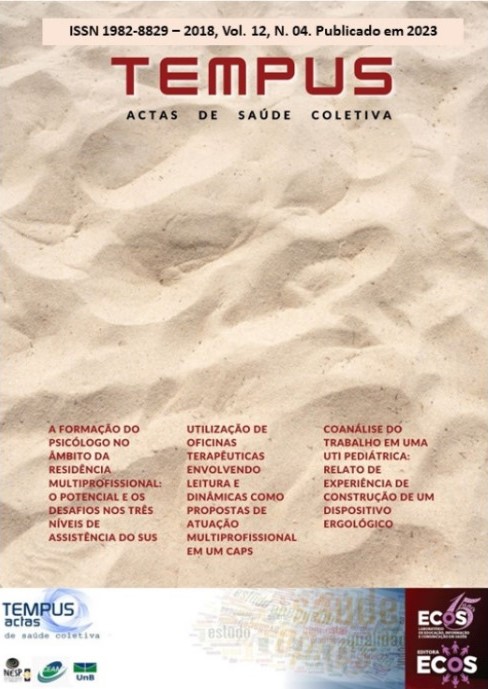Abstract
In view of the reformulation of the care model proposed by the psychiatric reform, the Psychosocial Care Centers (CAPS) were created through a multiprofessional team to offer therapeutic activities aimed at the construction of new ways of caring for the user with mental disorder. The realization of therapeutic workshops allows the possibility of expressing feelings in a healthy and creative way, stimulating self-esteem and self-confidence. This work is a descriptive study in the experience reporting modality, based on the activities developed by residents of nursing, pharmacy and nutrition in the therapeutic workshops held at CAPS Walk in the city of João Pessoa / PB. The aim of this work was to promote access to knowledge, exchange of ideas and cultural production through the reading of poetry and cords, use of music and dynamics. Therapeutic workshops were used weekly, in which an average of 35 users participated. At each meeting we realized the importance of CAPS and therapeutic workshops in the production of care not only for them, but also for their families. It is concluded that the realization of the therapeutic workshops are enriching spaces for providing links between users, families and CAPS staff, thus allowing both the family and the patient to reorganize their routine and also to return their activities in society.
A Tempus garante critérios rigorosos, por meio de avaliação sistemática. Os autores se responsabilizam pela veracidade e ineditismo do trabalho cabendo a eles a cessão de direitos de publicação à revista. A confiabilidade dos conteúdos e a marca própria de apresentação tem como objetivo uma comunicação personalizada, adaptada aos padrões da revista, na medida em que adota critérios de excelência exigidos por seus usuários e especialistas, considerando os rigores da comunicação científica. Os autores devem especificar sua contribuição individual na concepção, delineamento, execução do trabalho, análise ou interpretação dos dados, redação e aprovação final do manuscrito. Incluir Fontes de financiamento e de apoio logístico das pesquisas. Ao final da submissão do artigo, os autores devem enviar uma declaração de cessão de direitos de publicação à Revista TEMPUS , assinada e no formato PDF (Portable Document Format ): Modelo da declaração de cessão de direitos.
